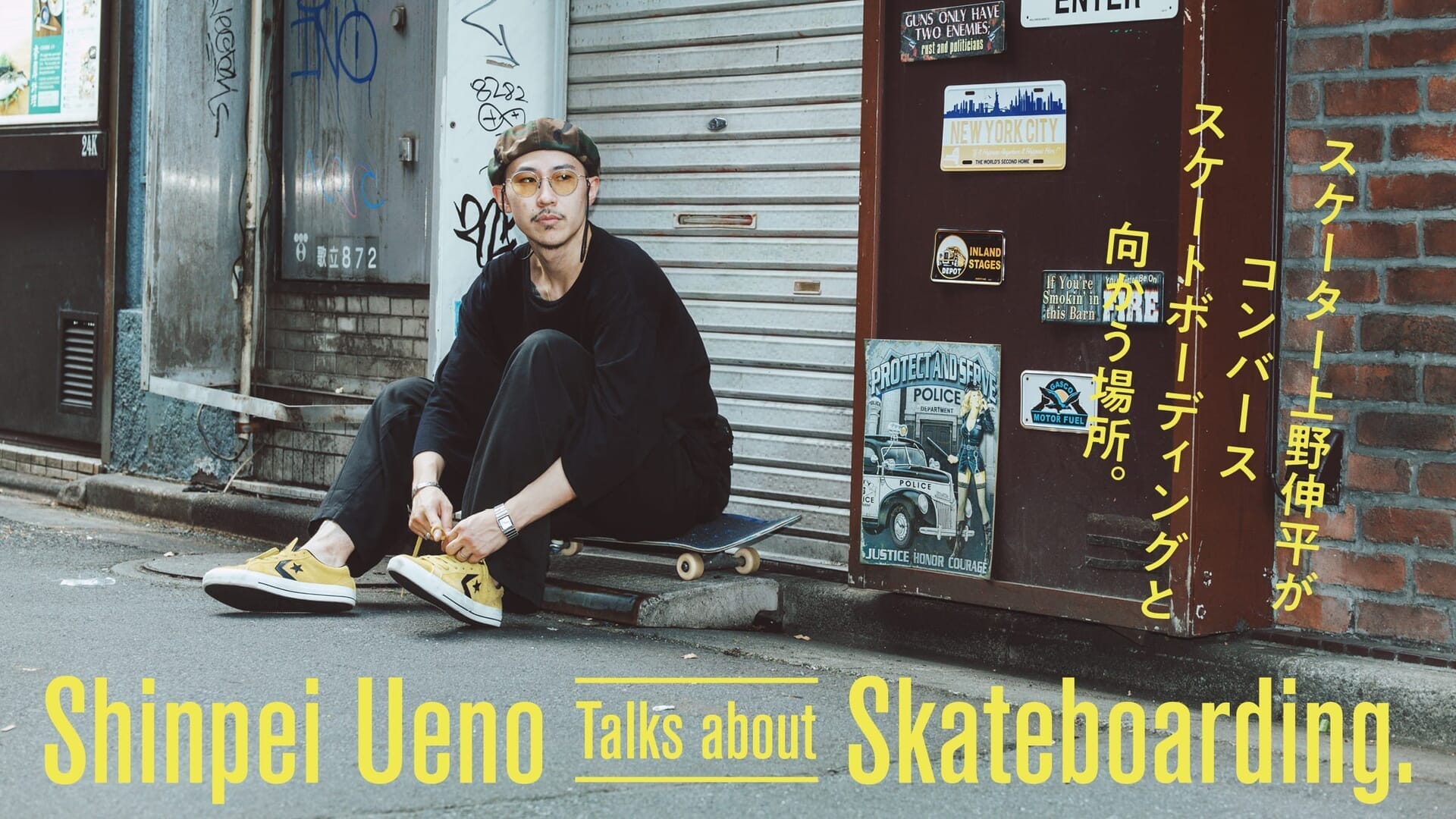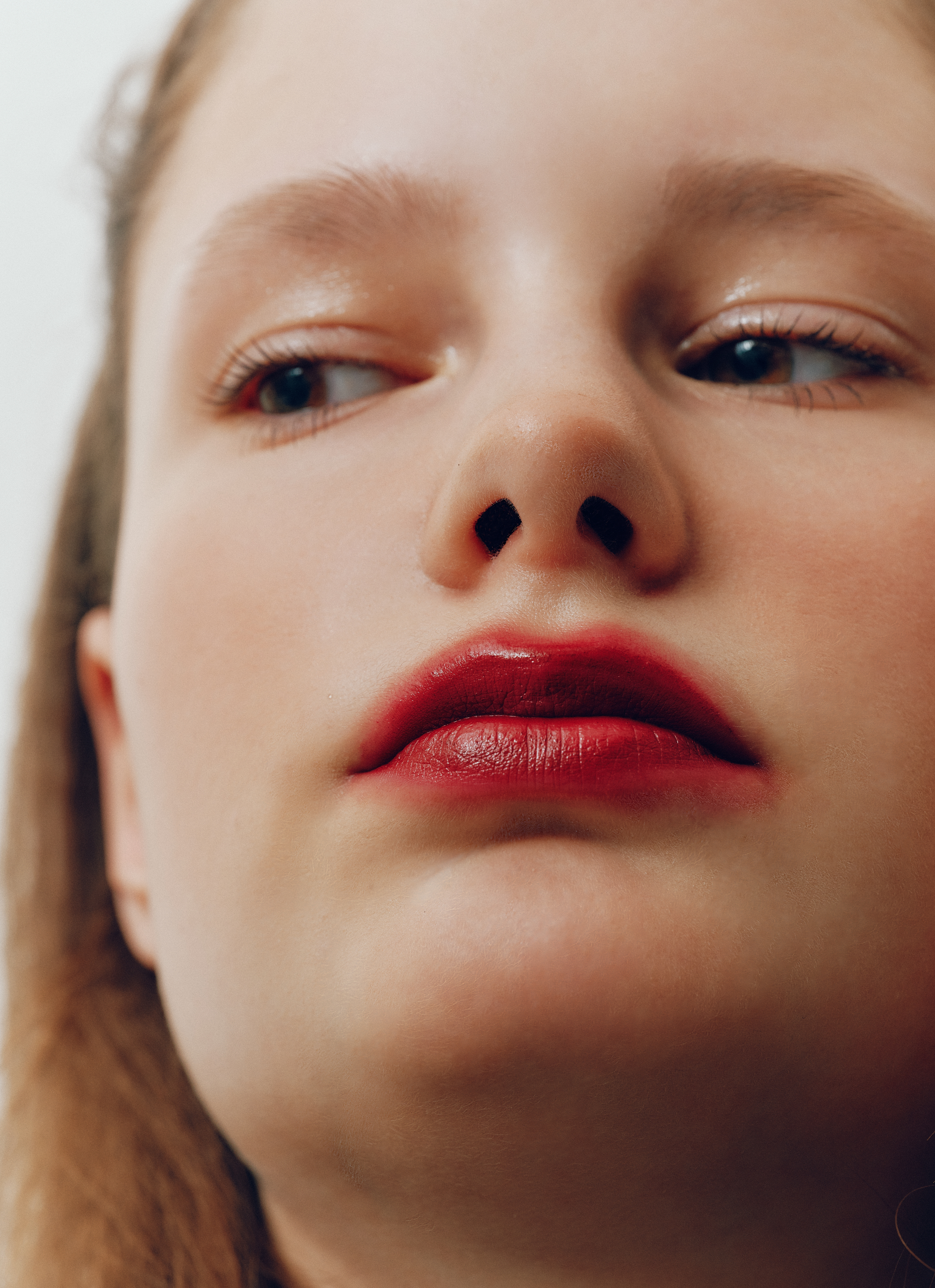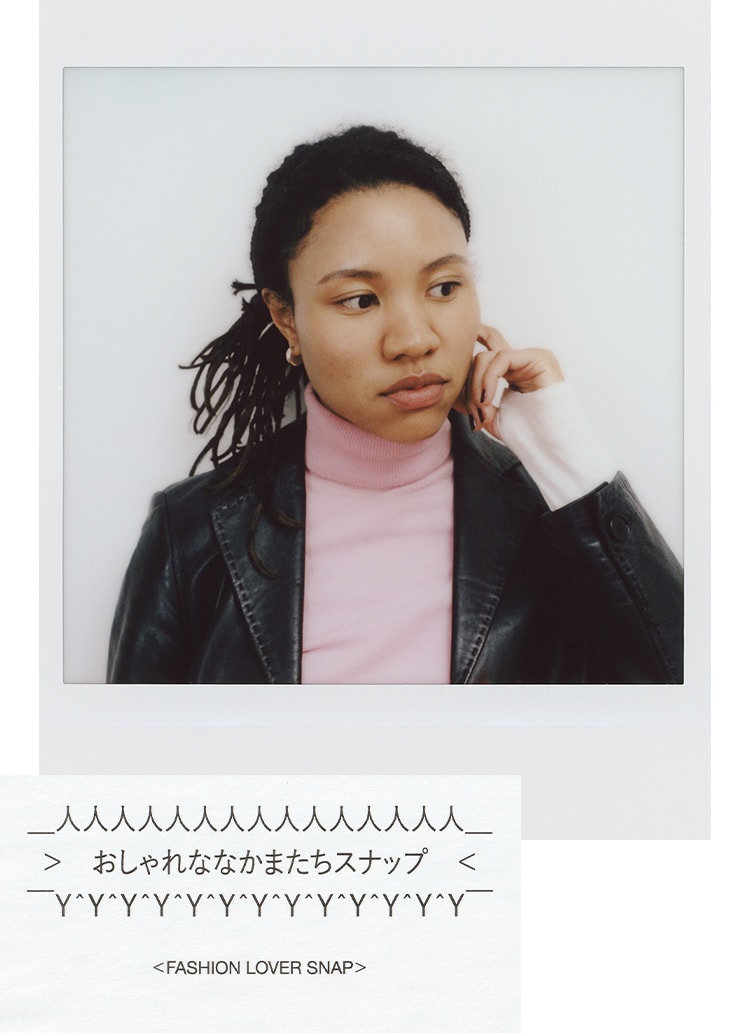PROFILE
Born in Osaka , 1983. While managing the apparel brand "TIGHTBOOTH PRODUCTION," he also works as a professional rider for "Evisen Skateboards. He has released the video works "LENZ" and "LENZ II", and is currently working on his latest work "LENZ III". He has established "QUCON" in Toranomon and is attracting attention from all over the world as a key person who connects the skate scene and the fashion scene. 2019 he will officially join Converse as a contract rider.
www.instagram.com/shinpei_ueno

It's not that the Olympics have made it more exciting,
. I think it's simply the right time for people to realize the appeal of skateboarding.
Shinpei: The skating scene in Japan and the world seems to be booming with the Olympics coming up next year, how do you see it?
I think it's not so much the Olympics, but the fact that skateboarding is becoming more and more popular, especially among young people, with social networking sites, the increase in skate parks, and the simple fact that people are seeing more and more skateboarding. People are starting to realize that skateboarding is so much fun. It used to be a culture that was difficult to enter, but now it is becoming more widespread, and young people are saying, "Skateboarding is so deep, it's amazing," and the scene is growing naturally, and the Olympics is helping it grow. It's not that the Olympics have made the scene more exciting, but it's simply the timing when people realized the appeal of skateboarding.
Certainly, there have been the X Games and the SLS Street League in parallel with the skate culture, and the Olympics came as an extension of that.
Yes . Skateboarding has become so popular all over the world that the Olympics became a celebration of skateboarding. The world is becoming more tolerant of skateboarding, and I think that's why it was chosen as an event.

I think that the original appeal of skateboarding has not changed, and more and more people are becoming aware of it. Do you feel that the number of skaters has increased?
Yes, there are. I am too old to go to skate spots where young people gather, but when I look at social networking sites, I see that there are so many skaters at those spots, and I hear that such young skaters have emerged. I feel that the scene has become so much more exciting with the generational change taking place. But I don't think most people are aware of the Olympics or anything like that. They just want to skate. People on the core cultural side are still not interested in the Olympics, and I'm not interested either. . It's the opposite of my fundamental principle of skating. . But from my standpoint, I want to promote skateboarding, so I don't deny it. I don't think anything about it, good or bad. For example, Yuto Horiyone, who is a potential athlete, is my friend, and if he competes in the Olympics, I won't deny it , I like it! I would just cheer him on while eating popcorn. I don't think it's something to think about too much. It's not something to make a big deal about. It's just one of the contests, and skating is not a competition for rankings, so I want to have a festive party with everyone once in a while! That's how a contest should be, and I think it's good to look at the Olympics and other big contests like that. Even if you win, it doesn't mean that you are the absolute winner in the skate scene.
Yuto-kun, you're great, Shinpei-kun, you're great, and so on.
They originally have that kind of feeling. I also respect Yuto, and I feel it from him. I think there are a lot of people who don't really understand skateboarding, who look at contests like this and skateboarding like this. I don't think skaters think that way.
You mentioned that the world is becoming more tolerant of skateboarding , how about in Japan?
Japan is not like that. There is a difference in national character, which makes it hard to be tolerant of skateboarding. There are voices from the so-called "underground" people who say that the Olympics are unacceptable. What they are worried about is that the Olympics will make skateboarding a major sport, which will make street skating more difficult, and they are concerned about the lack of aesthetics and sense of beauty unique to minorities. I had that too, and when I was filming on the streets, people would say to me, "Why are you guys skating here? What you are doing is just annoying and insulting to skaters. I think skateboarding is a counterculture to the rest of the world, and since it is the opposite of the majority, it is a community of people who share the same sensibilities, doing things in coterie magazines that the general public does not understand. But the more it becomes a major part of the Olympics, the more people will misunderstand it. I believe that street skating is the most correct way to skateboard, but the general feeling is, "Why go to all the trouble of destroying the city's architecture when there are skate parks? . That's how the general public feels. There are those kinds of ties.
Especially in Japan, they are very strong.
Yes, for example, if a skater ollies a station steer in the U.S., he or she will get high 5s and whistles from passersby, while in Japan, they will look at him or her with great disdain. . That's how different the feeling is. In San Francisco, when you park on the street, if there is no space, you hit the car in front of you and park forcibly, right? That would be unbelievable in Japan (laughs). (Laughs). People in Japan would sue you for even a slight hit on the window. It is a bit suffocating to skate in such an environment, isn't it?
Do you have an awareness of changing the environment, including such suffocation?
No, I don't think that far. Changing the Japanese national character is on the level of a national initiative (laughs). The lack of tolerance on the streets in Japan has not changed over the years, and I think that is the way it should be, so I would like to see the world become a little more skate-friendly, but Japanese people have a sense that they cannot let bad things go unchecked. In the West, people have a sense that they are themselves and others are others, so it is good to not interfere with others, but Japanese people interfere with others. However, there are good things that come from interfering, and the society is very safe and protected. As a skater, I admire the American and European lifestyles, but as a citizen, I would never want to live there (laughs). I don't believe in foreign countries there, and there have been many heinous incidents. Japanese people may be hard on others, but in terms of safety, the level is totally different.
It's true that safety is one of the reasons why people skate at night.
Yes, only in Japan can you skate so much at night.









